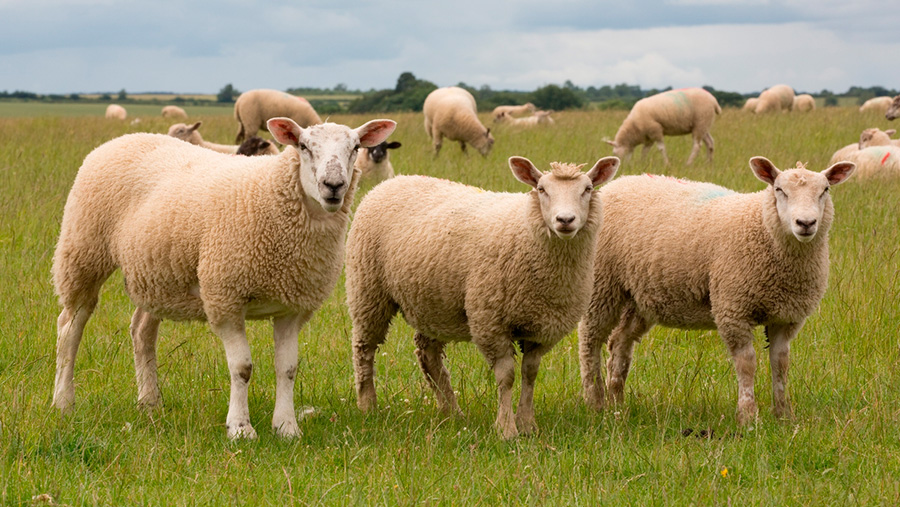Auctioneers alert sheep producers to risk of canine tapeworm
 © Tim Scrivener
© Tim Scrivener Auctioneers are reminding sheep producers to worm farm dogs at least every three months to reduce lamb carcass losses as a result of tapeworms.
Cysticercus ovis is the larvae of a canine tapeworm called Taenia ovis.
Cases of Cysticercus ovis infection – known as sheep measles – typically peak between autumn and spring, with abattoir feedback often showing outbreaks during this period in slaughter lambs.
Grazing sheep are infected by ingesting worm eggs shed by dogs in faeces.
In late June, Hereford Market Auctioneers said they were asked by store lamb buyers to call on farmers to ensure dog worming programmes are “up to date”.
It is the deadweight producers that will be at the sharp end of it Mike Evans, Hereford Market Auctioneers
Mike Evans, an auctioneer at Hereford Market Auctioneers, which recently resumed store lamb sales, told Farmers Weekly it is the producers who ultimately suffer.
“The consignee will suffer [if the lamb carcass is condemned],” he says.
“It is the deadweight producers that will be at the sharp end of it.”
Under-reported
According to Beth Lawrence from Belmont Vets in Herefordshire, eggs can survive for between three and 12 months on pasture and in feed.
“Eggs ingested by lambs on pasture or in contaminated feed hatch in the intestine, get into the muscles and appear as cysts,” she says.
“There’s no ill effect in sheep and lambs, the meat is just condemned.
See also: Group 4 and 5 wormer timing critical for growth rate and resistance benefit
“If you have cysts in more than two muscle groups they will condemn the whole carcass,” she says, warning that once a lamb is infected, there is no way of removing the fluid-filled cysts.
She adds that Cysticercus ovis infection is “hugely under-reported”.
“Farmers will get feedback from their abattoir and their buyers, but it is rarely reported back to us
To avoid lamb losses as a result of infection, she advises:
- If infection is confirmed on farm it is advisable to worm dogs every month
- Routinely, farm dogs should be wormed every three months
- Keep grazing lambs away from footpaths
- With any dog visiting you farm, including hunting dogs, confirm they have been wormed within the past three months
- Don’t allow farm dogs to eat lamb carcasses
Such efforts are vital to break the life cycle of the tapeworm on farm, she says.
“Time and persistence is required for a resolution on farm,” she says. “Dogs are infected by eating meat with cysts and it goes back round again.”
Costing roughly £5.20, worming a 20kg farm dog every three months is a worthwhile investment, she says.
“Tapeworm treatment is very cheap. It is a routine treatment and it should be happening every three months.”
